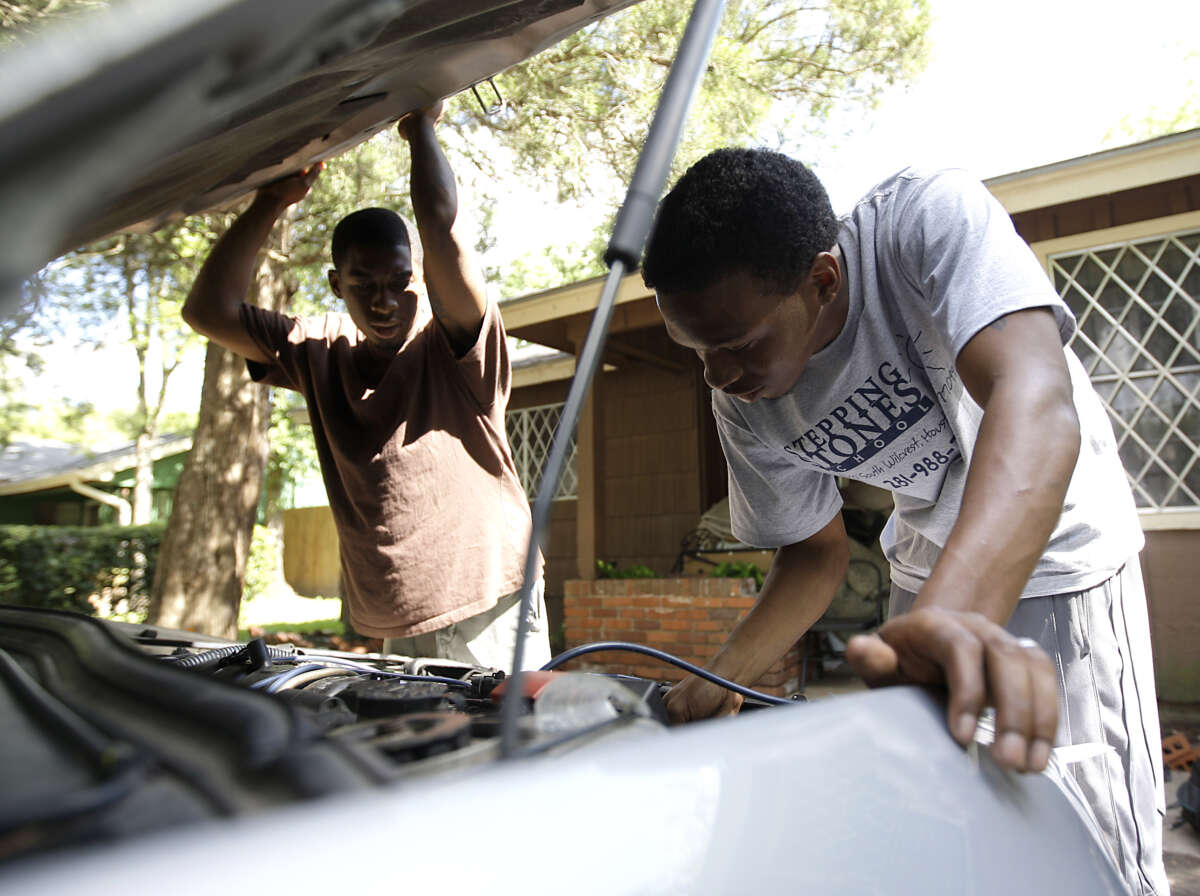Support justice-driven, accurate and transparent news — make a quick donation to Truthout today!
Finding work can be difficult for anyone, but Fernando Herrera faces an extra challenge. California has banned him for life from his dream job as a firefighter because of two felonies he committed as a teenager.
Herrera went to prison for assaults he committed at ages 14 and 15. But he took responsibility for his actions and turned his life around. He worked as an unpaid firefighter while in prison and found his passion. After his release, he served as a volunteer firefighter and helped put out the 2018 Camp Fire, which was the deadliest fire in California history. But despite becoming an outstanding citizen, California law prevents Herrera from obtaining EMT certification, without which he cannot become a paid firefighter. This is solely because of his criminal record.
Millions of job applicants face similar barriers nationwide. All 50 states and Washington, D.C. restrict people with convictions from obtaining a license to work. Many of these restrictions are arbitrary and unnecessary. Want to cut hair or paint nails for a living? Many states will not give you a license unless you pass a background check. Want to drive a commercial vehicle? Same drill.
Pennsylvania regulators denied Courtney Haveman a license to be a skin care specialist because of two DUIs, even though she had been sober for years and had an employer eager to hire her. Haveman sued the state with representation from our public interest law firm, the Institute for Justice, and won her case. But she should not have had to hire a lawyer just to work in a spa.
Worse yet, 30 states can deny a license to work if a person is arrested but never convicted. Single mom Ifrah Yassin learned this the hard way. Officers briefly arrested her on suspicion of robbery in 2013, but prosecutors declined to file charges after realizing she was innocent.
Despite the vindication, Minnesota regulators still tried to use the incident to stop Yassin from working in a group home for adults with intellectual disabilities 10 years later — at a desk job no less. Our law firm again intervened.
People should be able to leave their past behind them, but far too often the government will not let them. This is a problem for nearly one-third of the adult working-age population, which has a criminal record. Over 60 percent of people leaving prison are unemployed a year later, seeking work but not finding it.
Some state lawmakers are trying to change this. But rather than look inward at their own state licensing laws, they shift the blame onto employers who hesitate to hire people with criminal backgrounds. Most recently, New York Gov. Kathy Hochul signed the Clean Slate Act on November 16, 2023, which creates a path for returning citizens to have their records expunged. The premise is simple: If employers cannot see convictions, then applicants who served time are more likely to get hired. Overall, 12 states have passed legislation like this in the past five years.
The approach has merit but overlooks the other half of the equation. Many employers are eager to hire returning citizens but cannot because of bad state laws. New York’s Clean Slate Act does nothing to change this. The law still allows government regulators to view expunged records to determine “suitability for licensing.”
Some jobs are hit harder than others. Health care careers are almost entirely unavailable for people with criminal records. A single drug conviction — tainted by judicial misconduct — upended Erma Wilson’s dream of becoming a registered nurse in Texas. Colorado goes further, placing restrictions on all jobs at behavioral health institutions. People with criminal histories cannot mop floors or serve cafeteria food in these facilities in Colorado.
Tennessee and Virginia target addiction recovery counselors. Role models with personal experience getting sober need not apply if previous substance abuse led to a conviction. Rudy Carey hit this wall in Virginia. The state tried to block his counseling career because of a single assault conviction in 2004.
One workaround for people with criminal records is self-employment. Yet regulators still have ways to interfere. The Federal Communications Commission tried to stop Joe Armstrong from operating a radio station in Tennessee. And the U.S. Department of Agriculture tried to stop Mark Wilks from joining the Supplemental Nutrition Assistance Program (SNAP) as a retail partner at his neighborhood stores in Maryland.
Until states pass meaningful reform, litigation is the only answer for many applicants. After Haveman sued Pennsylvania, her case prompted new legislation. Now, licensing boards cannot deny applications based on someone’s criminal history unless convictions are “directly related” to the occupation. Boards also must show evidence that granting the application would pose a “substantial risk” to the public.
Herrera was not so lucky in California. He went to court in 2020 to challenge his lifetime ban on being a firefighter and lost. California still has not fixed its laws.
Changes are long overdue. People should not have to hire a lawyer just to get a job. New York’s Clean Slate Act is one approach to reform. But eliminating unnecessary licensing laws is a better one.
Many states are making progress. South Carolina passed a law in 2023 that eliminates vague terms like “good moral character” and “moral turpitude” to deny licenses. Illinois, Missouri and Oklahoma have also passed licensing reforms in recent years, and Colorado has a bill advancing in 2024.
These are all steps in the right direction. People make mistakes, but they deserve a chance for a fresh start.
Media that fights fascism
Truthout is funded almost entirely by readers — that’s why we can speak truth to power and cut against the mainstream narrative. But independent journalists at Truthout face mounting political repression under Trump.
We rely on your support to survive McCarthyist censorship. Please make a tax-deductible one-time or monthly donation.
